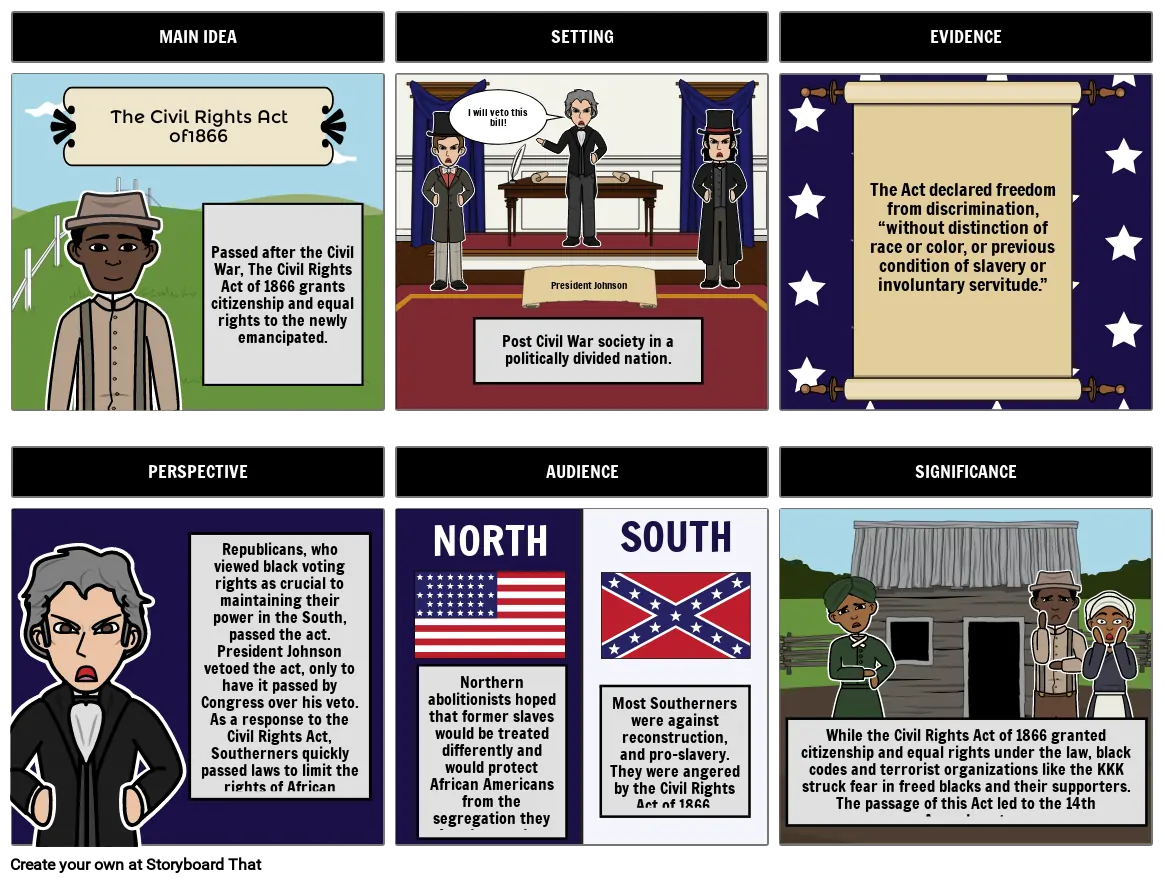Story board

Storyboard Text
- MAIN IDEA
- The Civil Rights Act of1866
- Passed after the Civil War, The Civil Rights Act of 1866 grants citizenship and equal rights to the newly emancipated.
- SETTING
- Post Civil War society in a politically divided nation.
- President Johnson
- I will veto this bill!
- EVIDENCE
- The Act declared freedom from discrimination, “without distinction of race or color, or previous condition of slavery or involuntary servitude.”
- PERSPECTIVE
- Republicans, who viewed black voting rights as crucial to maintaining their power in the South, passed the act. President Johnson vetoed the act, only to have it passed by Congress over his veto. As a response to the Civil Rights Act, Southerners quickly passed laws to limit the rights of African Americans.
- AUDIENCE
- NORTH
- Northern abolitionists hoped that former slaves would be treated differently and would protect African Americans from the segregation they faced every day.
- SOUTH
- Most Southerners were against reconstruction, and pro-slavery. They were angered by the Civil Rights Act of 1866.
- SIGNIFICANCE
- While the Civil Rights Act of 1866 granted citizenship and equal rights under the law, black codes and terrorist organizations like the KKK struck fear in freed blacks and their supporters. The passage of this Act led to the 14th Amendment.
Over 30 Million Storyboards Created
No Downloads, No Credit Card, and No Login Needed to Try!
